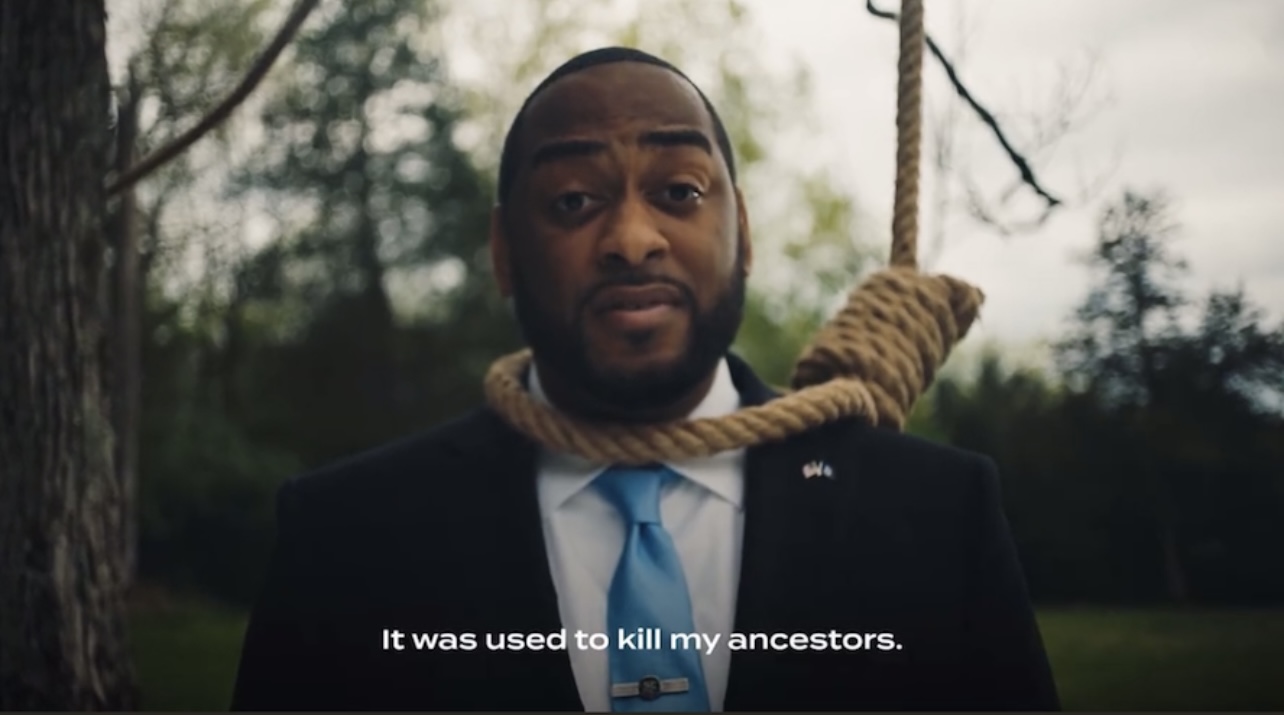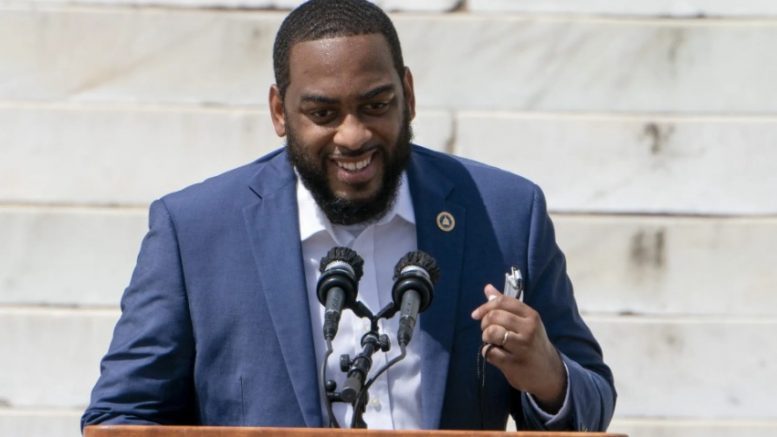Nominee for the United States Senate In a campaign ad criticizing opponent Rand Paul, Charles Booker wears a noose
In his debut campaign ad, Charles Booker, the first black man from Kentucky to secure the Democratic nomination for U.S. Senate, makes a daring remark on lynching laws.
In the video, Booker criticizes his opponent, Rand Paul, for initially opposing legislation that would make lynching a federal hate crime. Booker talks about the history of lynching in Kentucky, and he even draws a picture of himself with a noose around his neck.
“The pain of our past, persists to this day. In Kentucky, like many states throughout the South, lynching was a tool of terror. It was used to kill hopes for freedom. It was used to kill my ancestors. Now, in a historic victory for our Commonwealth, I have become the first Black Kentuckian to receive the Democratic nomination for U.S. Senate.”

Booker goes on to criticize Paul for some of his positions on racial inequality over the past ten years, such as his views on expanded health care and the Civil Rights Act, and he insists that he will bring much-needed change to the state if he is elected in November.
Lynching is a tool of terror. It was used to kill hopes for freedom. In Kentucky, it was used to kill three of my uncles.
In this historic election, the choice is clear. Rand Paul may want to divide us, but hate won’t win this time.
It’s time to move forward, together. pic.twitter.com/oYxuqKFdWR
— Charles Booker (@Booker4KY) June 1, 2022
My opponent? The very person who compared expanded health care to slavery. The person who said he would’ve opposed the Civil Rights Act. The person who single-handedly blocked an anti-lynching act from being federal law. The choice couldn’t be clearer. Do we move forward together? Or do we let politicians like Rand Paul forever hold us back and drive us apart?”
During a speech at Howard University in April 2013, Paul expressed his views on the Civil Rights Act. Rand Paul reiterated during his lengthy speech that he supports the 1964 act but is concerned about the “ramifications of key provisions of the Civil Rights Act beyond race.”





